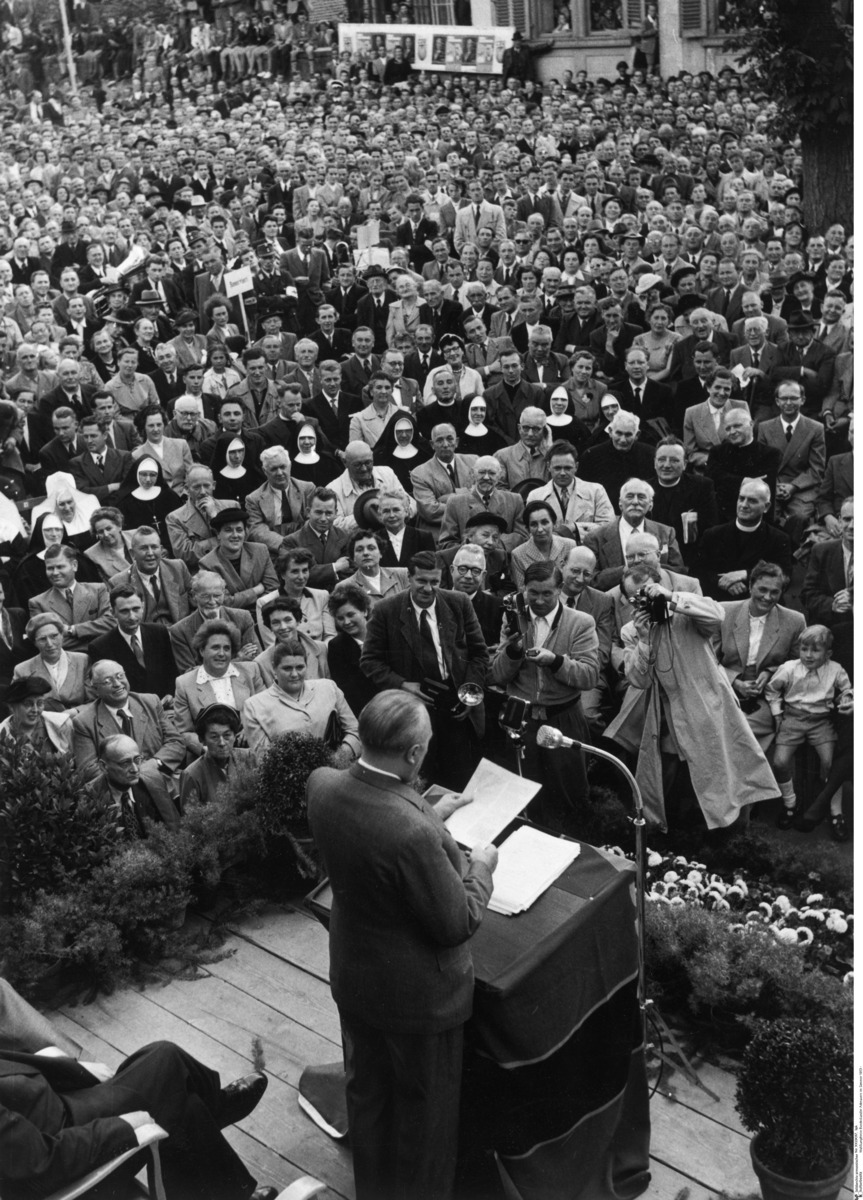Abstract
The Christian Democratic Union (CDU) had been founded in 1945 in
Berlin and had spread throughout the Rhineland via the city of Cologne.
Until 1950, the CDU was only organized into state-level groups
coordinated by an “Interzonal Liaison Committee” or an “Interzonal Work
Group.” The CDU was first founded as a federal-level party at the Goslar
Party Congress (October 20-22, 1950), where Konrad Adenauer was also
elected its first chairman. In Bavaria, the Christian Social Union (CSU)
had been organized not as a state branch of the CDU, but rather as an
independent party, in order to show that Bavaria regarded itself as a
free state [Freistaat]. The CDU and
the CSU formed a single faction in the Bundestag, however.
On the basis of Christian values and representing an attempt to
bridge the old Catholic-Protestant divide, the Union represented itself
as an interdenominational bourgeois-conservative collective movement, as
the first true people’s party. The crowd gathered at this CDU campaign
event – a predominantly middle-aged, well-dressed group that includes a
strong contingent of priests and nuns – makes clear that the party’s
message resonated with its target audience. Under Chancellor Adenauer,
the dominant political figure of the early Federal Republic, the CDU/CSU
virtually became the parties of the social market economy and Western
integration and repeatedly won the support of voters.
